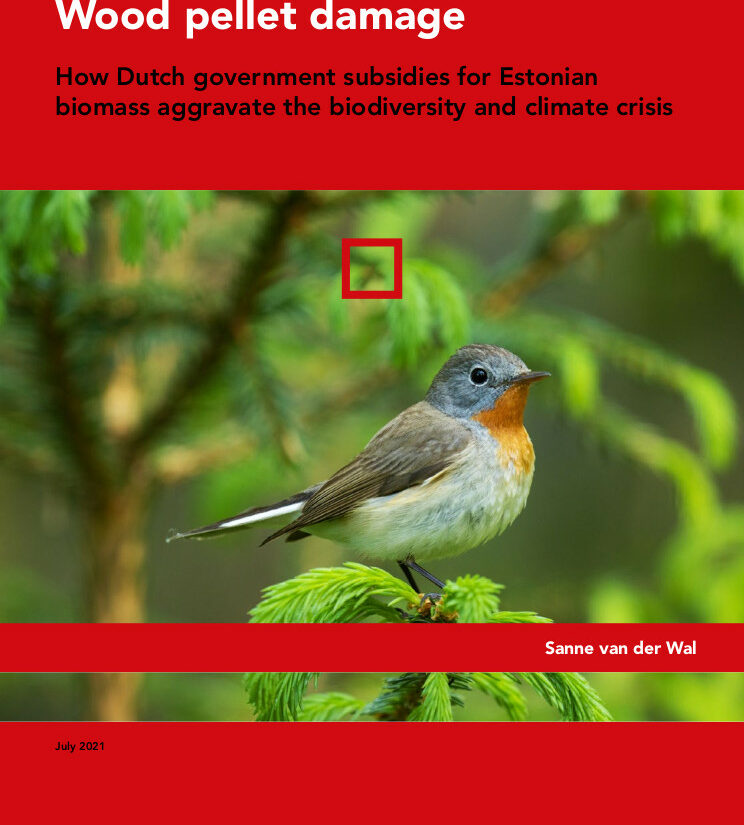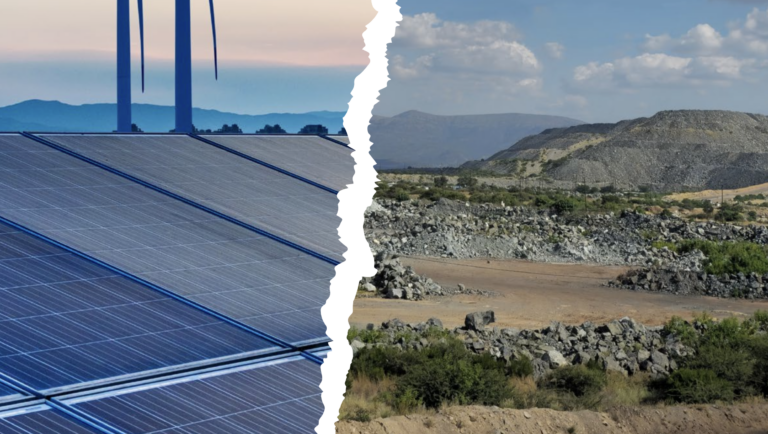
Wood pellet damage
How Dutch government subsidies for Estonian biomass aggravate the biodiversity and climate crisis
Wood pellets, which are biofuel particles made of compressed sawdust and chipped wood from logs, are the Netherlands’ most important source of biomass for energy production. Since 2018, imports have doubled in volume each year fuelled by biomass energy production subsidies under the Sustainable Energy Production (SDE+) scheme. To ensure that biomass is produced sustainably, a normative framework with principles and criteria was set up. Energy companies that want to receive subsidies for co-firing wood pellets must show that they have been produced in compliance with all the criteria.
The aim of this research, commissioned by Greenpeace Netherlands, is to ascertain whether wood pellets used for co-firing in Dutch power plants are produced in compliance with the Dutch criteria for sustainable biomass. The report’s focus is specifically on production of wood pellets in Estonia, by the Estonian company Graanul Invest, a leading supplier to the Dutch market and Europe’s most important producer of wood pellets and fully certified to the Sustainable Biomass Programme (SBP) standard.
The report highlights three types of logging practices in Estonia that are particularly harmful ecologically and for which the report’s researchers could find enough information for analysis: logging in high conservation value forest (HCVF) areas (1), in watersheds (2) and in peatland forests (3). Cases of problematic logging with possible links to Dutch imports were identified and documented.
The research on the practice of logging in high conservation value forests in Estonia makes clear just how much old-growth forest and key habitats for protected species are under pressure in this country that were supposed to be protected under the Dutch criteria. Based on the findings presented in this research, it can be concluded that the production of wood pellets in Estonia regularly fails to comply with the Dutch criteria for sustainable biomass, as well as those of sustainable forestry (production) standards of SBP, Programme for the Endorsement of Forest Certification (PEFC) and FSC. Moreover, this report shows that the type of harmful logging revealed in this report is also likely to be linked to Dutch wood pellets imports.
Do you need more information?
-

Sanne van der Wal
Senior Researcher
Publication
Related news
-
 The Counter: strengthening the fight for climate justice around the worldPosted in category:Long read
The Counter: strengthening the fight for climate justice around the worldPosted in category:Long read Luis ScungioPublished on:
Luis ScungioPublished on: -
The hidden harm of green hydrogen Published on:
 Ilona HartliefPosted in category:Publication
Ilona HartliefPosted in category:Publication Ilona Hartlief
Ilona Hartlief
-




